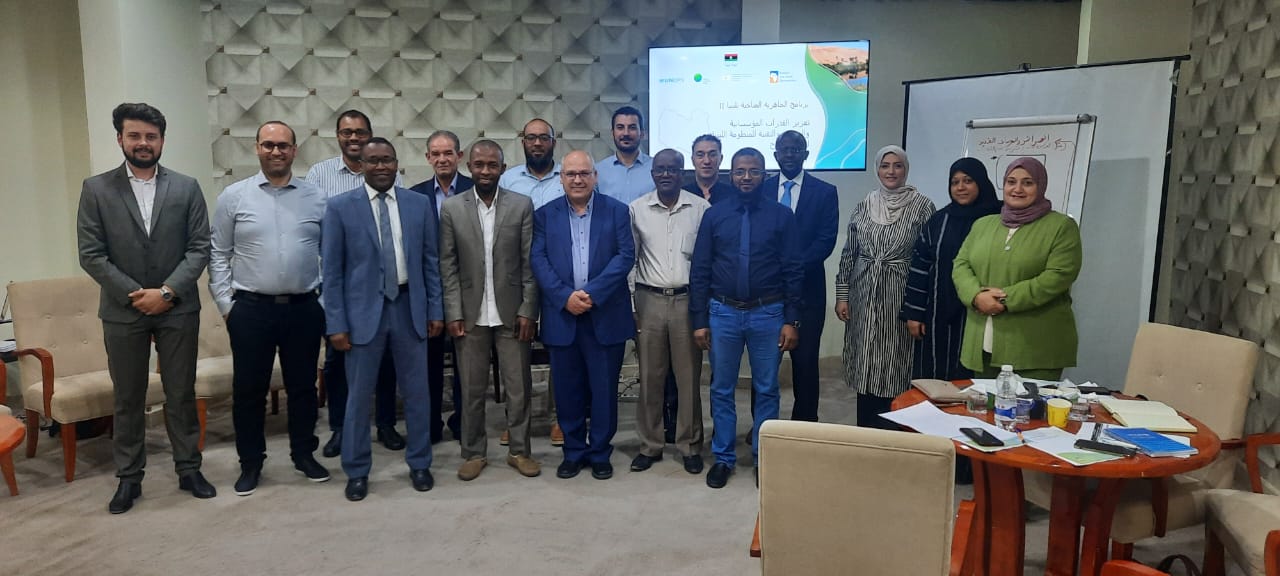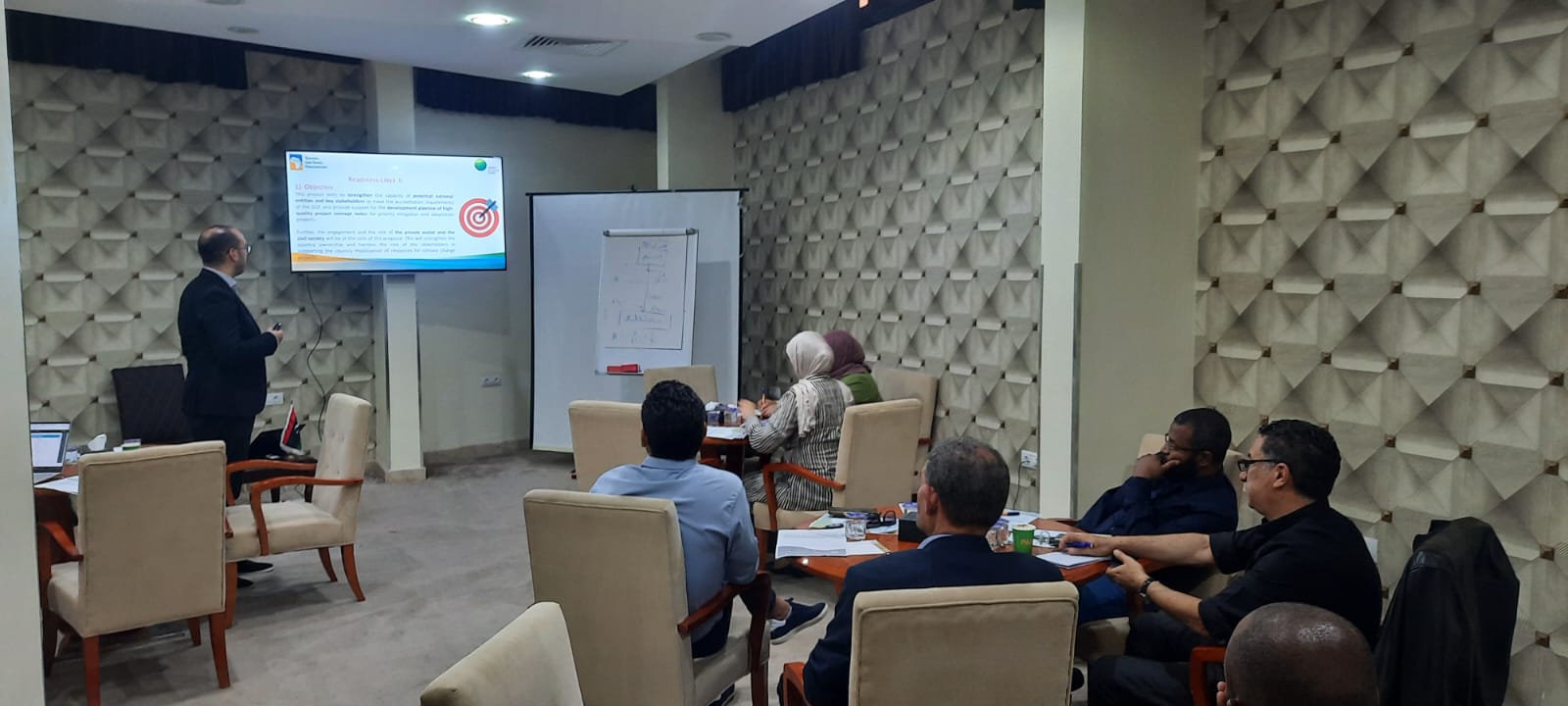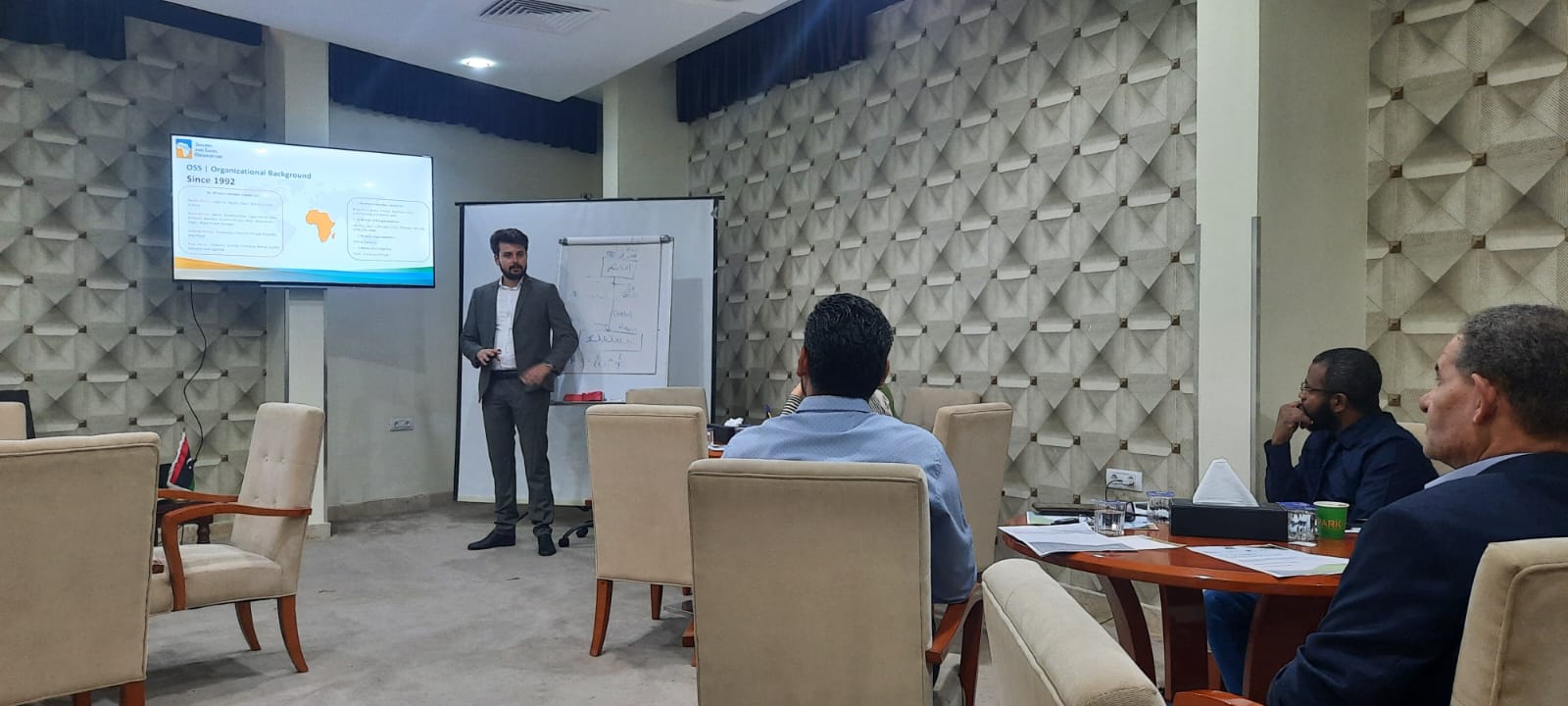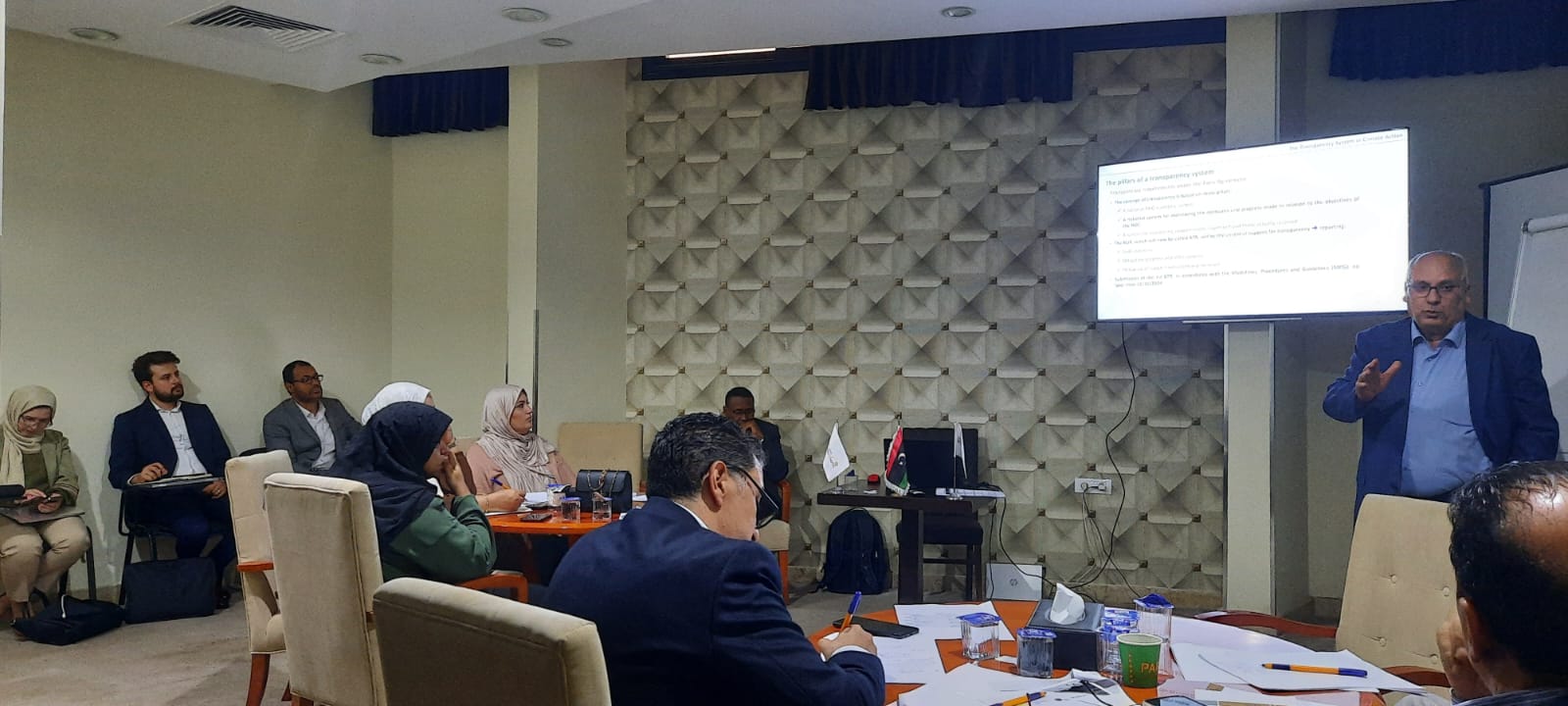



The projected increase in temperatures in Libya, the accelerating frequency and aggravated intensity of extreme weather events, the decrease in rainfall and the rise in sea levels are huge threats that put the sustainability of water supply at risk and represent a life and death issue to some 70% of the country's population. Not only do these environmental challenges impede the sustainable development efforts but they put a strain on the rational management of Libya's natural resources.
Libya has received a financial support from the Green Climate Fund (GCF) through a grant agreement aimed at preparing the country for climate finance access and establishing the National Designated Authority (NDA). This support falls within the Readiness Support Project for Libya (READINESS-LIBYA-II).
The Sahara and Sahel Observatory (OSS), an accredited Implementing Entity with the GCF, organized a training workshop on May 9th and 10th, 2023, in Tripoli, Libya. The workshop brought together 25 participants representing key ministries (Environment, Planning, Agriculture), the Libyan Research Center for Climate Change, the Libyan Electricity Corporation and the civil society and aimed at building and strengthening the capacities of the NDA members, Libya's focal point and the relevant partners on the climate finance mechanisms. The ultimate goal was to make it possible for these key players to assist the relevant stakeholders in securing the necessary funding to implement climate change actions at the national level.
The workshop focused mainly on the climate change fundamental concepts and basic information. This knowledge is highly important in providing the participants with a shared and reliable understanding of the specific issues related to climate finance in general and the mobilization of the GCF funds in particular.
Furthermore, the workshop aimed to raise participants' awareness on the challenges and impacts of climate change, particularly within the Libyan context, in order to reach a better governance at the international level, of the countries’ requirements under the United Nations Framework Convention on Climate Change (UNFCCC) and the key aspects related to the Paris Agreement and its implementation.